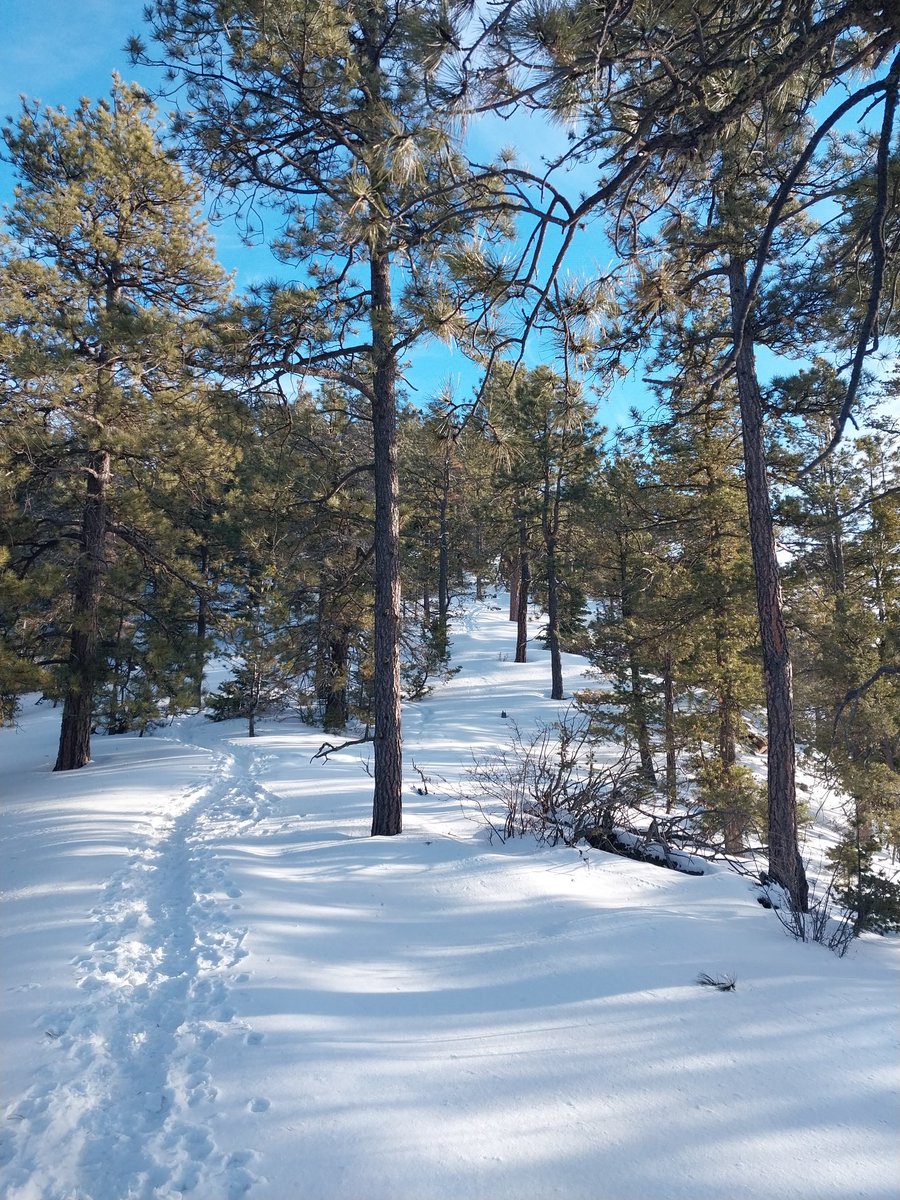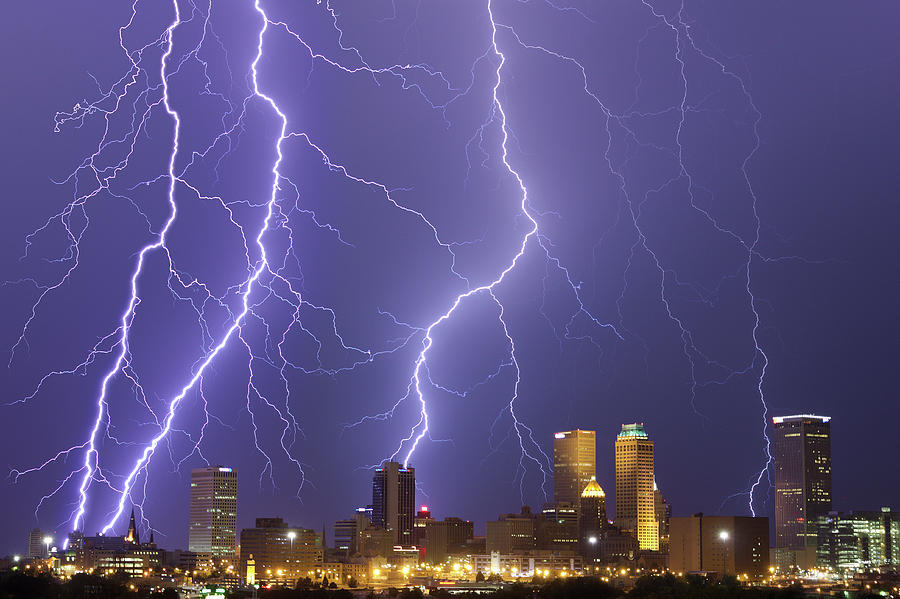orangeblood wrote:DukeMu wrote:orangeblood wrote:
I'm not arguing whether geothermal is increasing or isn't in that particular region, just that it absolutely is a part of the climate equation. The debate is still by what magnitude ?
There are a slew of factors, including geothermal. We can parse them out better than decades ago as boundary conditions are becoming better known.
The continuous trend for CO2 is up. The analogies I use are like a thumb on the scale affecting outcomes and a probability model. While it's difficult to link specific weather events to the increased CO2 in the atmosphere, like adding millions of entries into a Lotto. It increases the probability of events While CO2 is only the 3rd most potent major greenhouse molecule (water vapor and methane are 1 and 2), CO2 is homogenously distributed in the troposphere (latitude, longitude, and altitude), it has a long half-life of (decades). Antarctica and Mauna Loa get the same values. Absorption of infrared radiation is an essential thermodynamic property. So the effects of upward trends are predictable in that the hum presses harder on the scale.
I measured CO2 in the atmosphere quite a bit back in the 80s for calibration of O2 and CO2 analyzers and it was 330 ppm (up from 280 ppm at the turn of the 20th Century. Today we're at 430 ppm and rising. Some of the temperature rise from 1980 - today was ironically reduction in particulate pollution (smog), some is UHI. A good bit of it is the rise in CO2 due to hydrocarbon burning and loss of tropical forestation.
While expected rise in night temperatures and largest changes at the poles are consistent with a modest greenhouse effects, predicting the future and the effect on specific areas and biosystems is difficult. The effects of CO2 are heterogenous and intertwined with complex ocean current oscillations. Models over-estimate the contribution of an expected rise in water vapor...by gaseous H2O is not homogenously distributed and has a very short half-life (days). However, the impact on the loss of albedo has been greater than affects.
I think we're looking at a 20-40 year transition to a carbon neutral environment. Carbon capture, potential development of fusion (now that we have superconductor magnets), hydrogen, ammonia, biofuels, planting more trees, greening the cities. I'm on the technology and innovation solution side.
Meanwhile, the probability of the # of Atlantic basin hurricanes will either not change or possibly decrease. However, the probability of CAT 4 and 5 bombs will continue to trend upwards. Most winter days will probably be warmer, with an occasional disrupted polar vortex.
My main concerns over the next 20-40 years are (slowly) rising sea level and potential for mega droughts scattered around the globe, taxing food supplies. These are things the Pentagon worries and plans potential scenarios where wars are ignited by limited food and resources in an increasingly unstable political climate.
The Earth will survive, regardless. Most of the Earth's existence was been without polar ice caps. That's a relatively "new" phenomenon, and the last 10M years have featured relatively unstable polar ice coverage.
Thank you for the thorough and well thought out hypothesis, I appreciate it! This is very important and valuable dialogue that needs to continue.
I obviously come from the other side of this debate, more so being that WAY TOO MUCH attention is on CO2. Yes, its 3rd on the list of greenhouse molecules in the atmosphere but it is extremely miniscule when compared to the other two (Water Vapor and Methane) and it's really not even close particularly when compared to Water Vapor. Water Vapor is the strongest greenhouse gas in our atmosphere, don't believe there's really much of a debate on that. My point in bringing up geothermal and it's little known contributions to the atmospheric cycle (mainly because it's not well monitored across our vast ocean sea floors) is that it contributes to the undebatable strongest Greenhouse Gas contributor, Water Vapor!!
The warming ocean, mainly away from the tropics, puts more water vapor into the air. That water vapor is the most prominent greenhouse gas and thus the temperature responds more so to that than anything else. The idea that its the air warming the ocean, and co2 is what is warming the air seems counter intuitive given the oceans have a 1000 times the heat capacity of the air. The colder the ocean, the more co2 and water vapor it holds vs the air. A warming ocean releases extra co2 into the air along with more water vapor. However the amount of extra water vapor is far far greater than the co2. So what would drive more warming.....water vapor. Where would that water vapor cause the greatest increase in temperature, given only small variations are needed to produce such things. The arctic, during their winter. This is easy to verify... just go to the DMI site and examine the temperatures to notice there has been no warming of the arctic in the summer, its all in the winter.
https://ocean.dmi.dk/arctic/meant80n.uk.phpI'm bringing this up because there are perfectly logical arguments and examples, simple in nature, that demonstrate why the idea that ALMOST ALL of the temperature variation is natural and as a matter of fact intuitive when one understands the entire system and how big it is and how small co2 is. That is not to say co2 DOES NOTHING anything has some effect on everything else, but if its so small, it's likely not worth spending too much time arguing over and definitely not worth spending trillions upon trillions of $$$ on. Our main focus of the climate community needs to be on gaining a better understanding of our oceans, the biggest contributor to the strongest Greenhouse Gas contributor on our planet, WATER VAPOR!!
https://tropical.atmos.colostate.edu/Includes/Documents/Publications/gray2012.pdf
Again water vapor has a very short half-life, is heterogenous, and has not significantly contributed to the current warm-up...which is good because the rise in temperature and sea level would have been even higher.
CO2's contribution to infrared absorption in the troposphere is hardly miniscule, and it has increased the most, with the increase and effect of methane from farming and loss of snow cover or arctic peat moss, etc. a distant second.
The last data that provided a disputable counter to the rise of CO2, and to a lesser extent methane, was from Roy Spencer at the University of Alabama - Huntsville about 30 years ago - I remember this. Their satellite data observed an increased altitude gradient on temperature in the troposphere, the opposite of a greenhouse effect. Unfortunately, Dr. Spencer did not correct for the decaying orbit of satellite used. When corrected, the temperature gradient was much lower and consistent with a greenhouse effect.
https://skepticalscience.com/print.php?r=180I would read information from one of our excellent climatologists at Texas A&M - they have studied this data for decades on climate change. CO2 does its thing regardless of public opinion, politics, etc. NOAA has excellent tutorials as well.
https://gml.noaa.gov/outreach/carbon_toolkit/Given the complexities of microclimates, ocean currents, atmospheric patterns the local affects vary. College Station's average lows are about 1.5° higher and the highs about a 1°F higher than in 1990 with the greatest change in Fall and Winter on average. Texas has extremely variable weather, but the length of heat waves, droughts, wintry mischief, and flooding rains have all increased. Arguably, minimal disruption.
I would anticipate that last summer was an anomaly because of the ENSO flip in May, much like 1998. However, the probability that more 112.5°F summers are in store for CLL in the near future is concerning.

 The posts in this forum are NOT official forecast and should not be used as such. They are just the opinion of the poster and may or may not be backed by sound meteorological data. They are NOT endorsed by any professional institution or
The posts in this forum are NOT official forecast and should not be used as such. They are just the opinion of the poster and may or may not be backed by sound meteorological data. They are NOT endorsed by any professional institution or 








